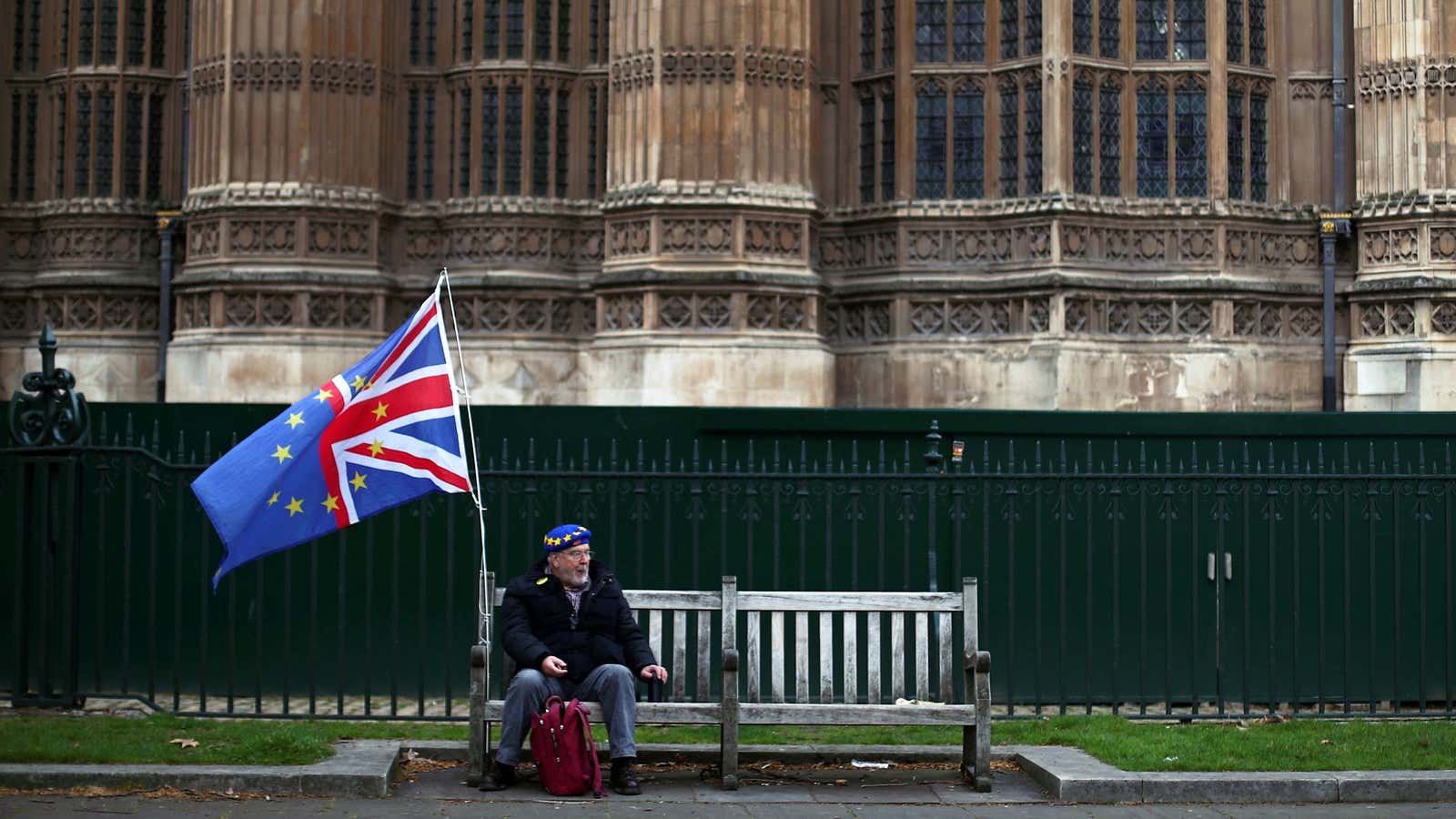Almost three years since Britain voted for Brexit, there’s still no clear solution on how to actually make it happen. A deal wrangled by Theresa May, no deal, and a second referendum have all been rejected by Parliament and the country is, quite frankly, a mess. Perhaps what we need is some serious brains detangling the problem. To that end, the Institute of Art and Ideas (IAI) recently invited 10 philosophers to reveal their answer to Brexit.
A.C. Grayling, an eminent moral and political philosopher who heads the New College of the Humanities in London, told the IAI that a second referendum on Brexit is in order: “Referendums are not appropriate for representative democracies, but matters have reached such a pass in the UK that the only way out of the debacle caused by the 2016 referendum is a further referendum predicated on all that has been learned since.”
Quentin Skinner, who co-founded the Cambridge School of the history of political thought, also believes that a second referendum is necessary. First, he told IAI, Parliament should find a solution supported by the majority of MPs, and then, the people must vote on this solution. “It is of course possible that Parliament will find itself unable to agree on any proposed solution at all,” he added. “But if it fails in this way, then there will be no alternative but to leave it to the people to decide.”
Many of the other philosophers solicited by IAI agree that a second referendum is the best outcome. But not all. Peter Ramsay, a law professor at the London School of Economics, advocated for Britain leaving the EU on April 12 as currently scheduled, as a second referendum would amount to Parliament “reneging on its commitment to implement the result of the 2016 referendum,” and so would be undemocratic.
Of course, anyone who’s been following the Brexit debates will notice that these scholars have little to add that hasn’t been said already—which raises the broader question of just how much philosophers have to offer a public political debate. Historically, philosophers have often engaged in such debates, and there are still some philosophers whose work reflects political circumstances. Jürgen Habermas, a German philosopher and the last surviving member of the Frankfurt School, a group of predominantly 20th-century thinkers including Walter Benjamin, has commented frequently on Brexit and long written on the European Union as a reflection of democratic ideals.
Though philosophers may add insight and analysis, there are unfortunately some political questions that cannot be neatly solved with intellect. In his comment to the IAI, Martin Loughlin, professor of public law at the London School of Economics, cited a warning from 17th-century English philosopher Thomas Hobbes that when warring political sides call on philosophers to defend their views, the resulting appeal lies “in lending the influence of attractive and emotive language to hasty and superficial opinions.”
And so, those who agree with these eminent philosophers that a second referendum is needed might well find wisdom in their words. For those who disagree, though, such philosophical pontifications are unlikely to be persuasive.
